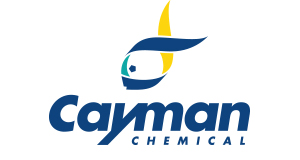ACSL1 (human, recombinant; aa 48-698)
ACSL1 (human, recombinant; aa 48-698)
SKU
CAY40418-20
Packaging Unit
20 µg
Manufacturer
Cayman Chemical
Availability:
loading...
Price is loading...
Formulation: 50 mM Tris, pH 8.0, with 150 mM sodium chloride and 10% glycerol
Purity: ≥90% estimated by SDS-PAGE
Formula Weight: 0
Shelf life (days): 365
Notes: Acyl-CoA synthetase long-chain family member 1 (ACSL1) is a long-chain acyl-CoA synthase that converts both saturated and unsaturated fatty acids into fatty acyl-CoA esters.{72369,66774,66775} It is expressed in liver, heart, adipose tissue, and muscle and, in the presence of TANK-binding kinase 1 (TBK1), localizes to the mitochondria where it promotes fatty acid β-oxidation.{66777,66776} In the absence of TBK1, ACSL1 is localized to the endoplasmic reticulum (ER) and facilitates lipid accumulation.{66777} ACSL1 has broad substrate specificity for 16- and 18-carbon saturated fatty acids and 16-20-carbon unsaturated fatty acids.{66776} ACSL1 knockdown suppresses palmitate-induced increases in the inflammatory markers TNF-α, IL-1β, and CD11c and inhibits lipid accumulation and the transition into foam cells in THP-1 macrophages, as well as inhibits ferroptosis induced by α-eleostearic acid (9(Z),11(E),13(E)-octadecatrienoic acid (Item No. 10008349) in BT-549 cells.{66778,57628} Levels of ACSL1 are increased in liver, breast, ovarian, and colorectal cancers compared with non-cancerous tissues.{72369} Cayman’s ACSL1 (human, recombinant; aa 48-698) protein can be used for ELISA, enzyme activity, and Western blot (WB) applications.
Purity: ≥90% estimated by SDS-PAGE
Formula Weight: 0
Shelf life (days): 365
Notes: Acyl-CoA synthetase long-chain family member 1 (ACSL1) is a long-chain acyl-CoA synthase that converts both saturated and unsaturated fatty acids into fatty acyl-CoA esters.{72369,66774,66775} It is expressed in liver, heart, adipose tissue, and muscle and, in the presence of TANK-binding kinase 1 (TBK1), localizes to the mitochondria where it promotes fatty acid β-oxidation.{66777,66776} In the absence of TBK1, ACSL1 is localized to the endoplasmic reticulum (ER) and facilitates lipid accumulation.{66777} ACSL1 has broad substrate specificity for 16- and 18-carbon saturated fatty acids and 16-20-carbon unsaturated fatty acids.{66776} ACSL1 knockdown suppresses palmitate-induced increases in the inflammatory markers TNF-α, IL-1β, and CD11c and inhibits lipid accumulation and the transition into foam cells in THP-1 macrophages, as well as inhibits ferroptosis induced by α-eleostearic acid (9(Z),11(E),13(E)-octadecatrienoic acid (Item No. 10008349) in BT-549 cells.{66778,57628} Levels of ACSL1 are increased in liver, breast, ovarian, and colorectal cancers compared with non-cancerous tissues.{72369} Cayman’s ACSL1 (human, recombinant; aa 48-698) protein can be used for ELISA, enzyme activity, and Western blot (WB) applications.

 Deutsch
Deutsch








